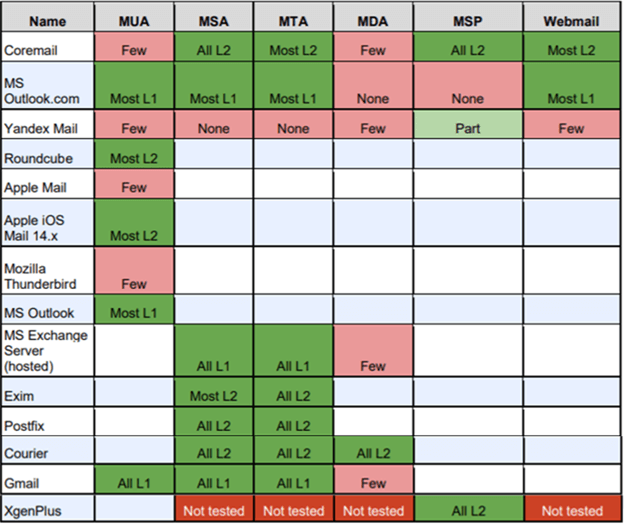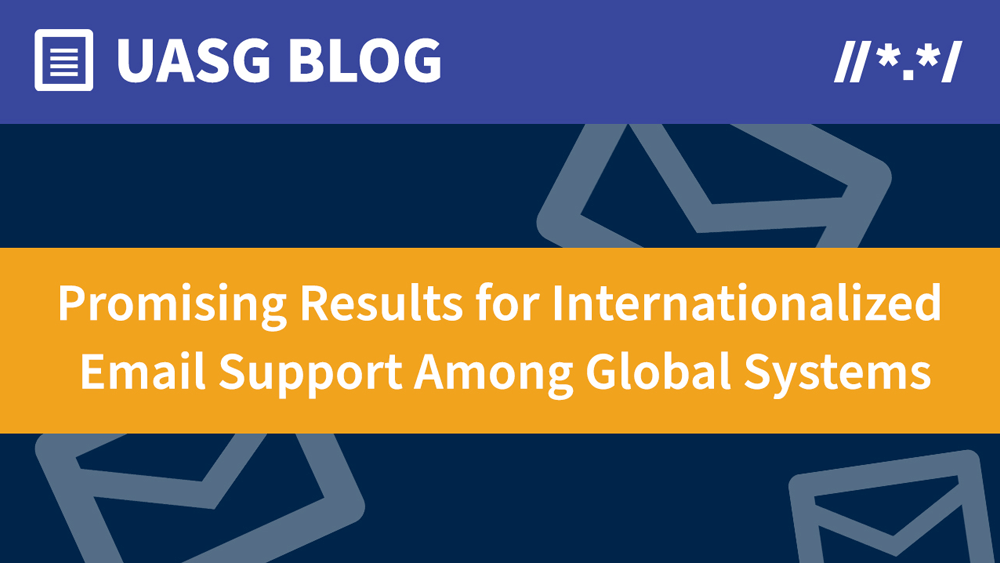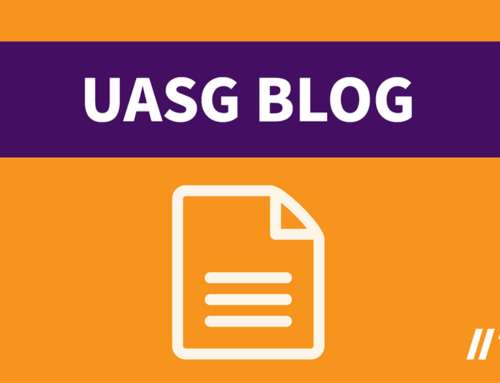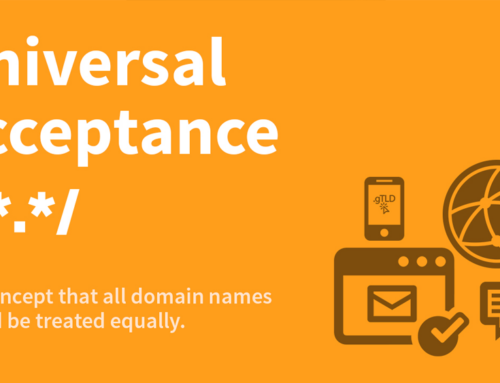By UASG Email Address Internationalization (EAI) Working Group – January 2021
Since its invention in 1971, sending and receiving emails has become cornerstone for many daily activities – from conducting business to connecting socially. However, even in our modern world, not every email system can support email addresses that use non-Latin languages, such as Arabic, Chinese, Russian, Thai, Hindi, and more. This process is referred to as Email Address Internationalization (EAI), which enables email addresses with either the domain name or mailbox name in any language and script to work properly when sending and receiving emails. As Internet access continues to expand globally, there will be increased demand for services that can support all domain names and email addresses. Businesses that support customers in this way will have a first-mover advantage, and will play an imperative role in achieving digital inclusivity.
To assess the EAI readiness gap of today’s email landscape, the Universal Acceptance Steering Group (UASG) completed its second comprehensive round of testing on popular global email systems. Overall, the results of the Evaluation of EAI Support in Email Software and Services Report (UASG030) are encouraging. A handful of email systems – Apple iOS 14, Coremail, Courier, Exim, Postfix, Roundcube – showed positive EAI readiness; however, there’s still work to be done as there were a few email systems that did not pass any tests, and not a single system passed every aspect of the EAI testing.
EAI Testing Process
Because email systems are complex, some components of an email system can be EAI-ready while others are not. Therefore, when evaluating the EAI readiness of the email systems in this report, the UASG’s EAI Working Group tested each applicable part of the systems depending on the features they offer. The tests were broken into the following categories:
| Mail User Agent (MUA) | The desktop, phone or tablet mail program that displays the domain name. |
| Mail Submission Agent (MSA) | Accepts mail from the MUA for further handling. |
| Mail Transfer Agent (MTA) | Transfers mail to other systems. |
| Mail Delivery Agent (MDA) | Stores incoming mail and is generally used by MUAs to retrieve mail.
|
| Mail Service Provider (MSP) | Provides email addresses (EAI or otherwise) for its users. |
| Webmail | an email service that can be accessed using a standard web browser |
To assess the EAI readiness of each system component, the UASG created several test email addresses in Chinese and Arabic. During testing, the UASG defined the EAI readiness of each system component in two levels:
- Level 1 – Partially EAI-Ready: The email system can only send to and receive email from internationalized addresses. (Example: bob@example.com can send and receive email from an address in Chinese, ó测试@电子邮件测试.中国).
- Level 2 – Fully EAI-Ready: In addition to level 1, the email system also hosts or offers local internationalized addresses. (Example: An address in Chinese, 测试@电子邮件测试.中国 can be registered as well as send and receive email from an address in Arabic بريد@اختبارالبريد.شبكة).
Results Summary and Takeaways
Apple iOS 14, Coremail, Courier, Exim, Postfix and Roundcube showed strong Level 2 EAI readiness, while many others displayed promising Level 1/some Level 2 readiness, including Microsoft’s Outlook and Exchange Server, as well as Gmail. Since conducting this analysis, the UASG plans to conduct outreach to all of the tested email systems and discuss their efforts to become Level 2 EAI ready.
Notably, of all the email systems tested, only Courier passed the MDA category test, which checks IMAP access to mailboxes with Unicode names. Courier is found to be Phase 1 and Phase 2 EAI-ready, to date, no other system tested has successfully implemented the IMAP extensions described in RFC 6855 or the POP extensions described in RFC 6856, which are specifications that assume the extensions will operate in a fully internationalized environment. Nonetheless, in most cases, POP and IMAP servers were still able to retrieve and store messages with arbitrary contents and manage folders with Unicode names using non-EAI commands, so many email systems were still able to pass the other tests.
Detailed testing methodology and results for each email system tested can be found, here.

Please note:
*Part = Some tests passed; component has partial EAI support.
**Few = Few tests passed; component does not have usable EAI support.
You Can Help Support EAI Readiness
The USAG will be conducting this audit yearly to determine progress, but organizations and users can also test EAI readiness anytime with the tools provided by the UASG. This includes testing your email address to determine if the mail server supports internationalized addresses and logging issues here. Organizations can also conduct full EAI testing with testing scripts available on GitHub (they are offered with a permissive BSD two-clause license).
If you would like to get involved in the efforts of the EAI Working Group, click here for more information. Additional UA working groups (Communications, Local Initiatives, Measurement, Technology) are also looking for dedicated community members to help in global UA efforts.





